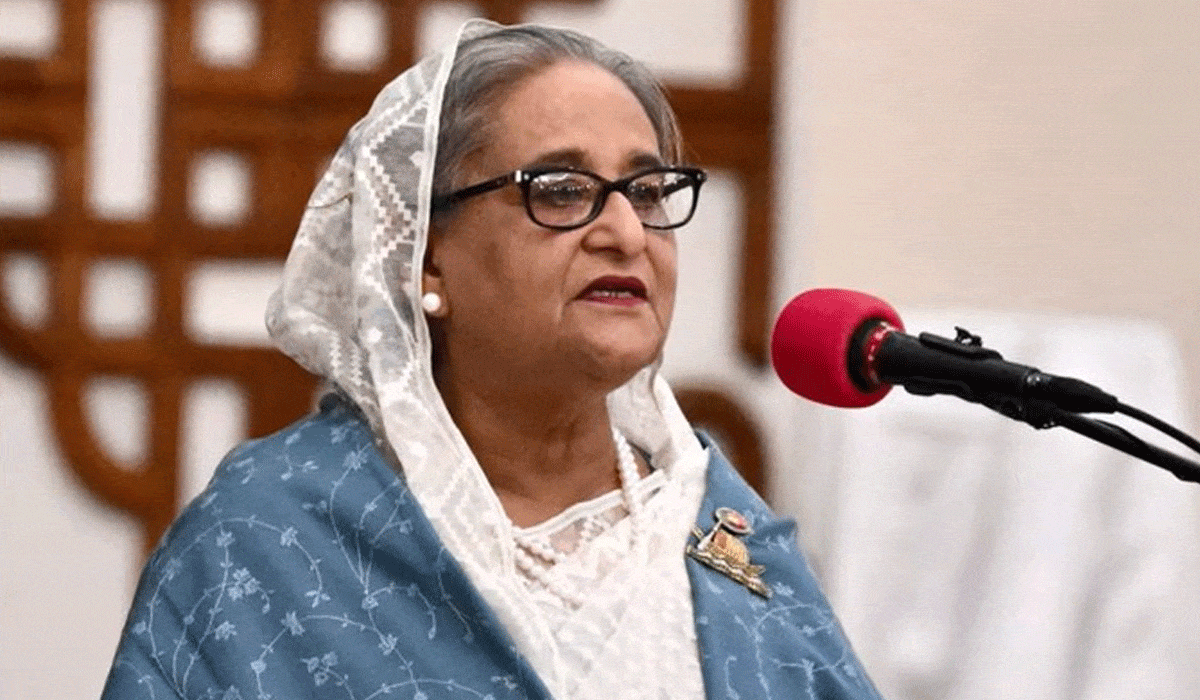European rights and advocacy groups slam ICT verdict against Sheikh Hasina
Five European international organisations have denounced International Crimes Tribunal's (ICT) judgement against Bangladesh's former Prime Minister Sheikh Hasina and demanded global action to stop what they describe "politically motivated" trials, the local media reported on Wednesday.

Dhaka: Five European international organisations have denounced International Crimes Tribunal’s (ICT) judgement against Bangladesh’s former Prime Minister Sheikh Hasina and demanded global action to stop what they describe “politically motivated” trials, the local media reported on Wednesday.
A coalition of rights and advocacy groups based in London released a joint statement, voicing “deep concern” over ICT’s recent judgement under Bangladesh’s interim government.
Also Read: EAM Jaishankar and Russian Deputy PM review preparations for Putin’s India visit
The coalition has written letters to the UN Secretary-General, the UN High Commissioner for human rights, Human Rights Watch, the European External Action Service, Amnesty International, the Commonwealth Secretariat, the US State Department’s Bureau of Democracy, Human Rights and Labour, the International Bar Association and several UN special rapporteurs, Bangladesh-based Dhaka Tribune reported.
In its joint statement, the coalition said the tribunal created to investigate atrocities committed during the 1971 Liberation War has “deviated from its core principles.” It slammed the recent trials held in absentia, saying such proceedings undermine judicial independence and breach international human rights standards.
The coalition expressed several concerns, including raising questions over inability of judiciary to function independently, constitutional legitimacy, rushed trials, absence of adequate legal representation, lack of defence witnesses and what it called as evidence of collusion.
The rights and advocacy group’s statement comes after Bangladesh’s International Crimes Tribunal (ICT) on Monday pronounced a death sentence for former Prime Minister Sheikh Hasina after it found her guilty on the charges of “crimes against humanity” related to the demonstrations in July of last year.
The ICT also convicted two of Hasina’s top aides, sentencing former Home Minister Asaduzzaman Khan Kamal to death and former Inspector General of Police Chowdhury Abdullah Al-Mamun, who turned state witness, to five years’ imprisonment.
Sheikh Hasina has denied the accusations that have been made against her in the ICT. She has alleged that the verdict announced against her came from a “rigged tribunal” set up and presided over by the unelected interim government led by Chief Advisor Muhammad Yunus which lacks a democratic mandate, calling the ruling “biased” and “politically motivated.”
In a statement, she stated, “In their distasteful call for the death penalty, they reveal the brazen and murderous intent of extremist figures within the interim government to remove Bangladesh’s last elected prime minister, and to nullify the Awami League as a political force.
Millions of Bangladeshis toiling under the chaotic, violent and socially regressive administration of Dr Mohammad Yunus will not be fooled by this attempt to short-change them of their democratic rights. They can see that the trials conducted by the so-called International Crimes Tribunal (ICT) were never intended to achieve justice or provide any genuine insight into the events of July and August 2025. Rather, their purpose was to scapegoat the Awami League and to distract the world’s attention from the failings of Dr Yunus and his ministers.”
Slamming the Yunus led interim government, Sheikh Hasina further said, “Under his aegis, public services have fallen apart. Police have retreated from the country’s crime-ridden streets and judicial fairness has been subverted, with attacks on Awami League adherents going unpunished.
Hindus and other religious minorities are assaulted, and women’s rights suppressed. Islamic extremists inside the administration, including figures from Hizb-ut-Tahrir, seek to undermine Bangladesh’s long tradition of secular government. Journalists are locked up and menaced, economic growth has stalled, and Yunus has delayed elections and then banned the country’s most longstanding party (the Awami League) from participating in those elections.”

